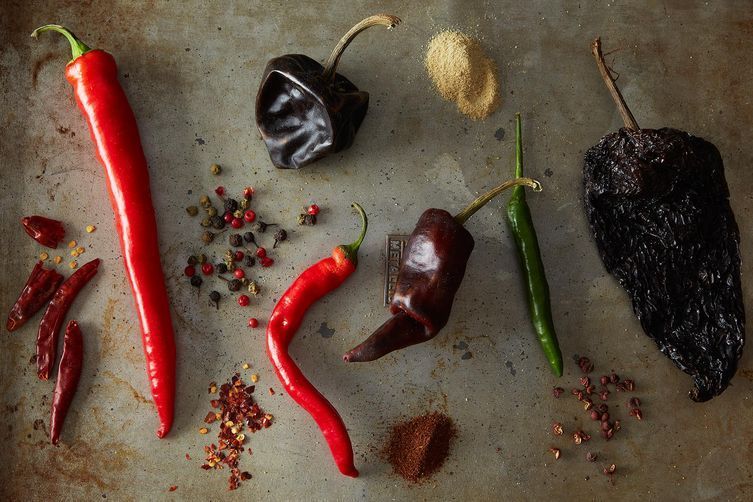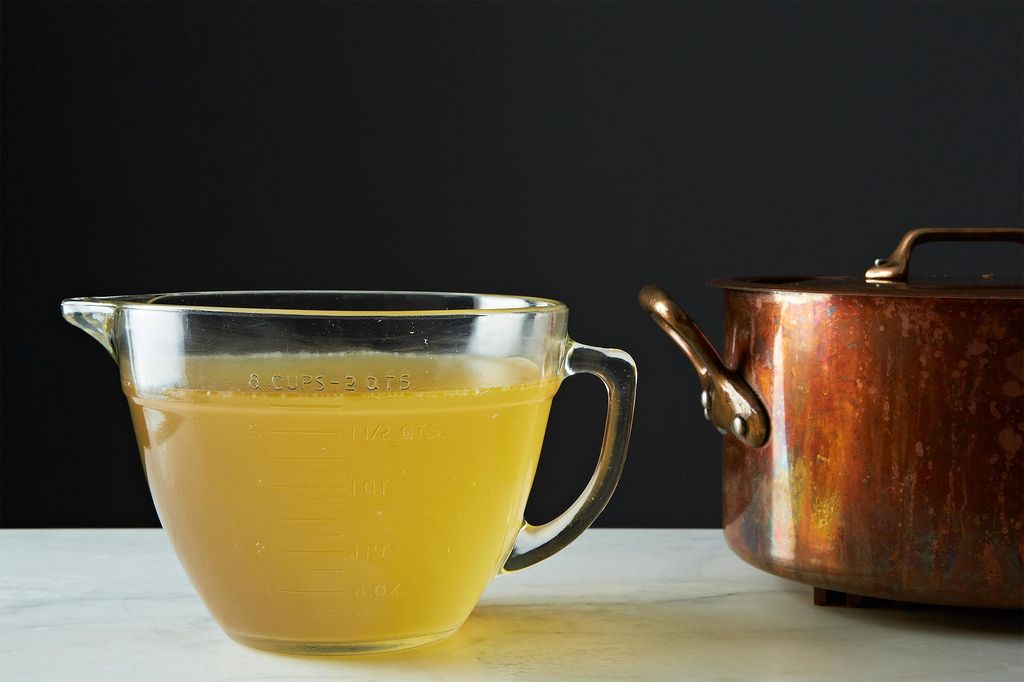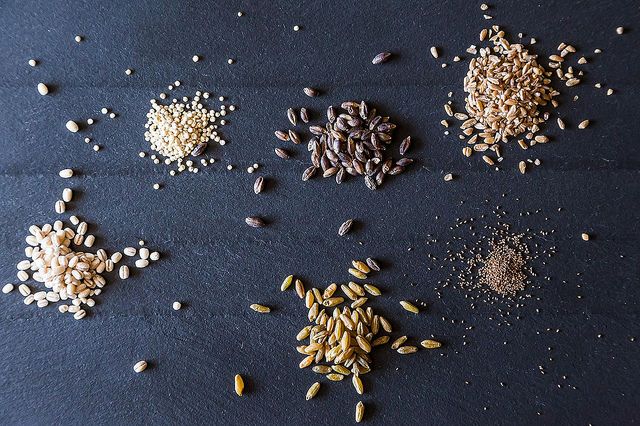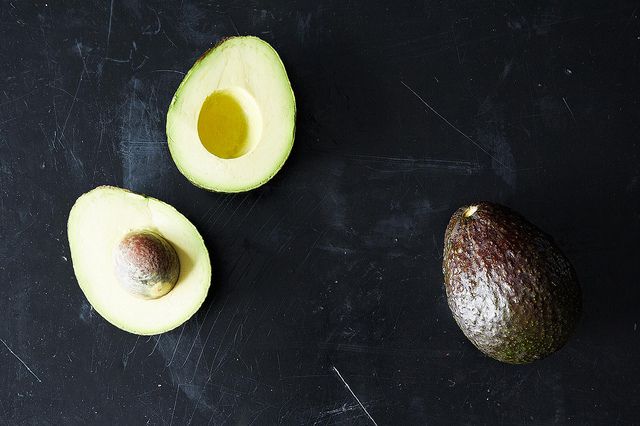Meatballs Tasted Funny After Adding a Jar of Mushrooms
Inspired by conversations on the Food52 Hotline, we're sharing tips and tricks that make navigating all of our kitchens easier and more fun. Today: How can you fix an overseasoned dish? Don't panic! Just follow these tips.

We've all been there. You're expecting guests at any moment, you've just popped open a bottle of wine, and you turn your all-day soup down to a simmer. You dip in your finger for a quick taste test, and oh no.
You've gone way overboard on the salt and your tongue tastes like you just jumped, open-mouthed, into an oncoming wave. Or maybe your eyes tear up, heat rises to your cheeks, and you start fanning yourself before finally sticking your mouth under the kitchen faucet.
After the shock comes confusion, regret, and then, finally, panic. The doorbell rings as your first guest arrives. Who gets to a party on time, anyway?!
Freeze.
Overseasoning is a bummer—and it happens to all of us. In fact, it's an issue that's been floating around our Hotline for years, in one form or another. But if you follow these emergency guidelines, you can resuscitate a meal on the edge of death, and turn a near-tragedy into a victory.
All great meals are about balance. The five tastes—sweet, salty, sour, bitter, and umami—should all complement each other, without any specific one hogging the limelight. When one of those tastes becomes too strong, the dish will taste off. Obviously, depending on the desired finished product, certain tastes will be more dominant, but they must be kept in check.


General Cures
When faced with an over-seasoned dish, your first move should be to try to balance out the flavors. Often, this is done by playing with fat, sweetness, and acids. Depending on the issue at hand, try adding a drizzle of olive oil, squeeze of lemon, or spoonful of sugar to your dish, then taste test again and proceed from there. You can also customize these flavors—say, sub in butter for olive oil, vinegar for citrus, or honey (or maple syrup) in for sugar.
Second resort: dilution. If you're making a soup or a stew, add water, unsalted broth, any non-dairy milk (from coconut to oat), or cream to dilute the excess seasoning. Increasing the volume of the dish will spread out the spice or salt, and make each individual serving more palatable.
If it wouldn't make sense to add more liquid to your dish—say, if it's a salad or a pilaf—try adding more bulk to put things on an even keel. Unseasoned rice, potatoes, beans, or any other other neutral, starchy ingredient will help round out the flavor.
More: Need some grain-spiration? We can help you out.
If none of these methods help ease your palate, there are a few more specific cures to target your overseasoning dilemmas. Keep that chin up!
If Your Dish Is Too Spicy...


When it comes to spice, dairy is the best neutralizer. This is because chiles contain capsaicin, a substance which makes your tastebuds feel that fiery burn. Meanwhile, milk contains casein, a compound which bonds with capsaicin and helps dissipate it. (Science!) Next time you want to dial back the spice level on a dish, try stirring in a few spoonfuls of yogurt, sour cream, or crème fraîche—and next time you're dared to eat a whole jalapeño pepper, be sure to have a glass of milk handy.
More: A hefty dollop of sour cream cools the burn of this hearty chili.
Another ingredient that can help combat spice is nut or seed butter. Rich in fat, nut butters will mellow out the fire in your dishes—just make sure its flavors will play well with the other ingredients. Similarly, creamy avocado can help soothe a burning tongue.
Sweetness can also balance a too-spicy dish. When our recipe developer Emma Laperruque made a chili that waswaytoo spicy, she found a solution in dried fruit: "Adding water or broth wasn't enough. Dolloping yogurt on top wouldn't be enough," she wrote. But simmering prunes, then puréeing them into a paste, added just enough sweetness to counteract the punch. In a similar situation, you could turn to sugar, brown sugar, maple syrup, honey, or molasses.
If Your Dish Is Too Salty...

Have you heard of the potato myth? It's the rumor that dropping a raw potato into an over-salted soup will "draw out" some of the salt. Sorry to break it to you, but this myth is 100% that—a myth. Busted.
While raw potatoes do indeed draw out some of the salt from a liquid, they also absorb a proportionate amount of liquid. Sorry, spud. If you dish is too salty, there are more reliable ways to balance things out. Let's take it case by case:
1. Too salty soup.Add more liquid (just make sure it's unseasoned—aka, not an already seasoned broth). Or add more mix-ins, such as vegetable chunks or cooked rice. Or add both! You can also stir in a small amount of sweetener to taste.
2. Too salty pot roast.Take a cue from Samin Nosrat. "Shred an oversalted piece of meat to turn it into a new dish where it's just one ingredient of many," she writes in Salt, Fat, Acid, Heat. For example: "a stew, chili, a soup, hash, ravioli filling." Psst: This also applies to oversalted vegetables and grains.
3. Too salty salad.Add more neutral-flavored components, like lettuce. Additionally, you can mix up a quick "dressing" by combining olive oil and honey or maple syrup, and incorporate this to taste.
Now, all caution aside, don't be shy with your seasoning. Professional chefs say that most home cooks err on the side of caution and underseason their food. So, while they are possible to overdo, salt and spices are your friends.
The solution, which you should adopt from here on out, is to season as you go, and taste frequently—very frequently. Consider it an excellent excuse to sneak samples of whatever you're cooking up.
This article was originally published in 2014. We updated it with even more tips. How do you correct a dish that's too salty or spicy? Tell us in the comments!
beattielabody1966.blogspot.com
Source: https://food52.com/blog/10046-how-to-save-an-overly-salty-or-spicy-dish
0 Response to "Meatballs Tasted Funny After Adding a Jar of Mushrooms"
Post a Comment